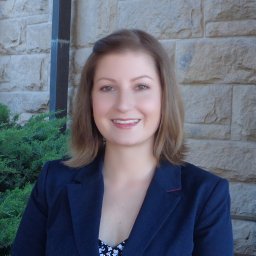Principal Investigator

Dr. Kirin Emlet Furst (she/her/hers or they/them/theirs) is Assistant Professor of Environmental Engineering and Affiliate Faculty in the Department of Chemistry and Biochemistry at GMU. Furst’s area of expertise is water quality engineering, particularly disinfection chemistry and organic contaminants in drinking water and water reuse systems. The main goal of their research is to identify engineering and policy strategies for mitigating human exposure to complex contaminant mixtures in drinking water. Furst is dedicated to advancing diversity, equity and inclusion in STEM and believes diverse academic teams are essential for training the next generation of engineers and environmental leaders.
Furst’s teaching interests include active learning methodologies and developing educational materials for visual learners. Furst is coauthor and illustrator of We Can Do It! A Graphic Novel Problem Solving Guide for College General Physics (CRC Press 2022). Outside of work, Furst enjoys hiking with their partner, playing with their cat (Beastie) and dog (Wyle),reading science fiction, and trying to keep their pandemic plant collection alive. She used to be a rather serious musician and maybe one day soon will stop neglecting her many guitars. Visit their Google Scholar profile.
Current Graduate Students

Meghana Kuppa is a first year PhD student Environmental Engineering in Dr. Kirin Furst’s research group at George Mason University. Her research interests lie in understanding the behavior of emerging organic pollutants in water systems and its long-term impacts on environmental health. Closely tied to this is her interest in understanding the impact of rising global consumerism on public health and circular economy goals. She has a bachelor’s degree in Civil Engineering from Jawaharlal Nehru Technological University (Hyderabad, India) and a master’s degree in Environmental Engineering from Duke University (Durham NC).
Meghana has experience working with government advisory agencies in India through the Swachh Bharat (Clean India) program in understanding toilet access in rural India. During her time at Duke, she has collaborated and worked with various environmental justice networks(Earth justice & Alabama Center for Rural Enterprise) on issues concerning sanitation access to underserved communities in the developed world. After graduating from Duke, she worked at the Environmental Research and Education Foundation (EREF) on projects that informed sustainable solid waste management practices. In her free time, she trains in vocal Indian classical music, watches a good drama TV show, or reads blogs on film/music/narrative history.
Current undergraduate students
Jena Chanaa, BS Civil Engineering ’24
